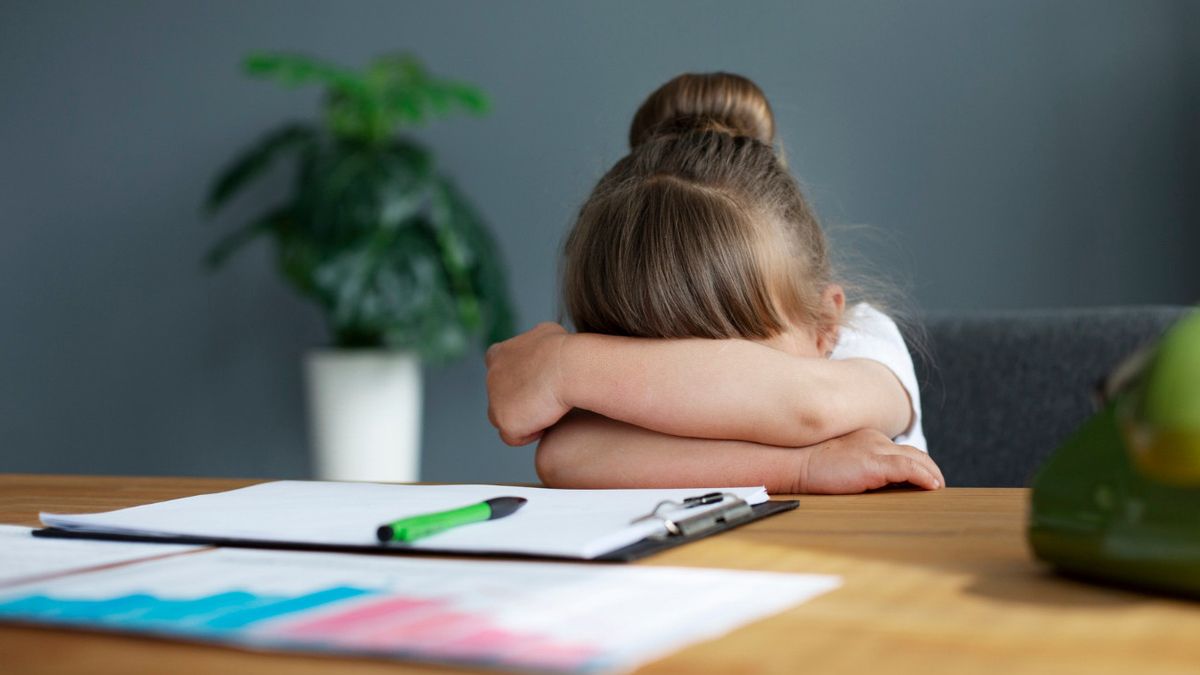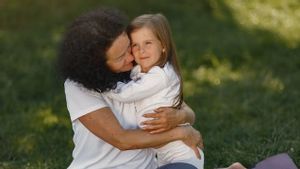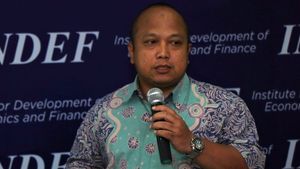YOGYAKARTA Children experience stress is normal. But the impact of stress on children's growth and development should not be underestimated. In humans, there are two types of stress, namely physiological and psychological. Physical stress is a strong enough physical strength to challenge a person's physical limits. Psychological stress, is a psychosocial strain caused by subjective interpretation based on expectations, beliefs, and assumptions stemming from previous experiences. The difference is, physiological stress is caused by changes in the outside world, while psychological stress is rooted in the brain.
Active stress response changes children's perception of controlling stress triggers. This is based on their experience, intensity, duration, and long-term stress effects. That is, even though all children experience the same stress trigger, each child perceives stress differently because their life experiences vary. For this reason, launching Parenting For Brain, Sunday, January 14, recognize the three types of psychological stress below.
A bad short-lived experience creates positive stress, or called eustress. Most daily stress is positive stress. This creates commonplace things in everyday life. While the eustress experienced by children, for example when they meet new relatives, enter new school, go to new day care, take their toys, or first school. Children's ability to deal with this kind of stress, is important for their health development.
Tolerable stress refers to a relatively short but intense bad experience. Examples are the deaths of loved ones, natural disasters, terrible accidents, moving to a new city, or separation from parents.
This type of stress in the second child can be tolerated if the child gets support from caring adults. Stress that can be tolerated in early childhood can increase children's growth and development if it becomes positive stress. However, this can only happen if there is adequate adult support. If a child does not receive sufficient support, even stress that should be tolerated can become toxic and cause long-term health problems.
A detrimental experience for children or called adverse childhood experiences (ACE) that lasts for weeks, months, even chronicly creates toxic stress. For example, abuse of children, both physical, emotional, sexual harassment, and neglect. Children cannot manage this kind of stress themselves effectively. When the stress response is active over a long period of time, permanent changes occur in the developing brain.
After knowing the type of psychological stress in children, it is important to understand the effect it has on the brain. A certain amount of stress is very important for human survival. This helps children develop the skills they need to deal with new and potentially dangerous situations throughout life.
Stress situations activate the body's warning system. The counter-or-run response produces physiological effects such as an increase in breathing, heart rate, blood pressure, overall oxygen consumption, and the release of stress hormones. Stress response to positive stress triggers and can be temporarily tolerated. Once the stressor disappears, the body returns to its original state. While positive and tolerable stress can encourage child development, toxic stress can damage various parts of the brain's architecture. The bad effects can affect cognition disorders, acceptance processes for learning, and memory disorders.
SEE ALSO:
The activation of a recurrent and prolonged stress response system causes an emotional center in the brain (limbik system) to grow and become too active. As a result, children who grow up with toxic stress become more anxious or aggressive. Empirical data also show that toxic stress can cause mental illness in the future, including somatic disorders, hallucinations, anxiety, obsessive-compulsive disorder, depression, posttraumatic stress disorders, and suicide attempts.
In addition to those described above, toxic stress can also endanger physical health. Stressed hormones, cortisols, released in stressful situations can suppress the immune system, making a person more susceptible to infectious diseases and chronic medical conditions. Children who grow with toxic stress have a higher risk of developing chronic health conditions such as heart disease.
That's the type of psychological stress in children whose effects on the brain and health need to be known, both physically and mentally. Through this knowledge, it is important for parents to pay full attention to their children. Because this is a way to support children in managing emotions in dealing with stress.
The English, Chinese, Japanese, Arabic, and French versions are automatically generated by the AI. So there may still be inaccuracies in translating, please always see Indonesian as our main language. (system supported by DigitalSiber.id)

















